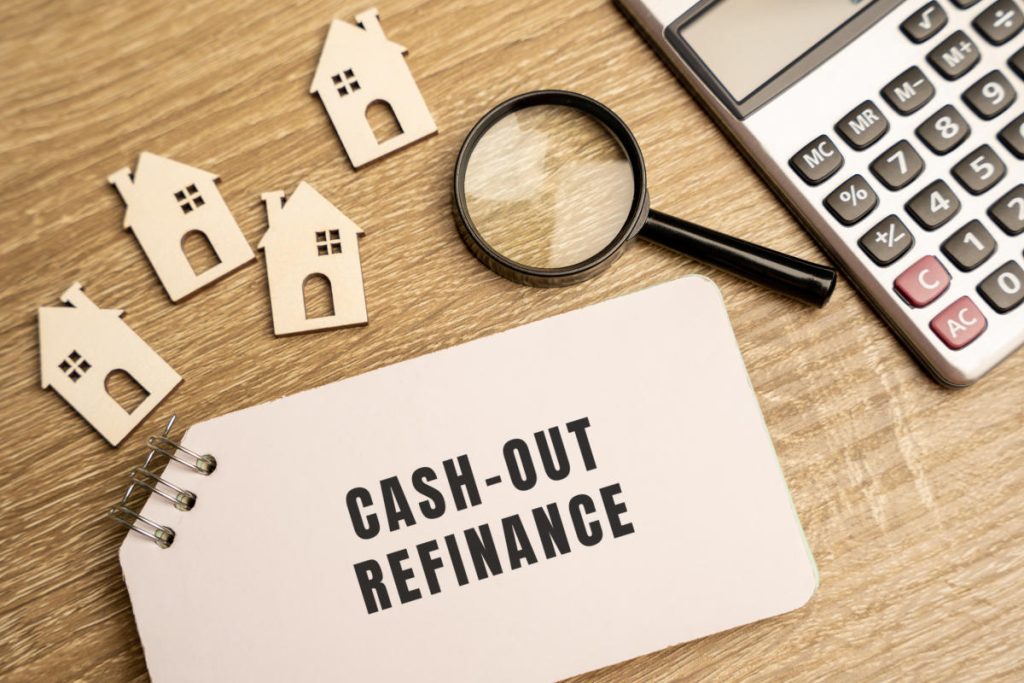Are you sitting on a goldmine without even knowing it? If you’re a homeowner, the answer is likely yes. A cash-out refinance is a financial tool that allows you to access your home equity when you need cash. Homeowners often have a substantial amount of their wealth tied up in their homes, and this method offers a way to liquefy those funds for various purposes.
Understanding the features and advantages of a cash-out refinance can help you decide if this option is right for you. It involves replacing your existing mortgage with a new, larger one, thereby allowing you to draw on the equity between the two loans. Let’s delve into the benefits, workings, and plans you can explore to make the most of your property’s equity.
Understanding cash-out refinance

So, what exactly is a cash-out refinance? At its core, this refinancing strategy is a straightforward concept. It replaces your current mortgage with a new one that has a higher value. The difference between your old and new loans is then dispensed to you in cash. This difference essentially allows you to turn your home equity into liquid assets, which can be used for numerous personal or investment projects.
Let’s consider an example to illustrate this process. Suppose your home has an appraised value of $300,000, and you have $100,000 remaining on your current mortgage. This scenario means you have built $200,000 in equity. With a cash-out refinance, you might be able to take out a new loan worth $240,000.
Why opt for a cash-out refinance?
There are numerous advantages to considering a cash-out refinance as a viable financial maneuver. One of the primary benefits is the ability to utilize your home equity to fund other financial needs or obligations. From renovating your kitchen to consolidating debt, the cash received can significantly aid various endeavors.
Interest rates on a cash-out refinance tend to be lower compared to personal loans or credit card rates. Therefore, choosing this option could enable you to reduce both your monthly expenses and your interest expenditures over time. Cash-out refinancing is also beneficial for those looking to make long-term investments or financial commitments, such as education fees or starting a new business venture.
Home improvements and other uses
Another fantastic reason for a cash-out refinance is home improvement. Whether it’s a fresh coat of paint, a new roof, or a modernized bathroom, the improvements not only enhance your living conditions but can also increase your property value significantly. By using your home as a financial resource, you’re essentially reinvesting back into it and potentially raising future resale values.
Besides home renovations, the funds may be channeled towards education expenses. College can be expensive, but the potential ROI (Return on Investment) for higher education is substantial. Using your home equity to cover tuition fees can alleviate the financial burden on you or your children, ensuring more liquidity for other expenses.
Types of refinance loans to consider
Several loan options are available when considering a cash-out refinance, each with unique features making them suitable for various situations. The first option is a conventional fixed-rate refinance loan, known for its consistency and predictability. It’s excellent if you plan to reside in your current home long-term because it offers a stable interest rate that remains unchanged over the life of the loan.
Alternatively, there’s the adjustable-rate mortgage (ARM) refinance. Initially offering lower interest rates than fixed-rate loans, it’s an ideal choice if you plan to move within the next few years. ARM loans provide lower payments at the start of the term, helping you save money initially. However, as the name suggests, rates can fluctuate, often becoming steeper after the initial few years.
Key considerations and more options
While a cash-out refinance is attractive, it’s important to understand its intricacies and the potential long-term impacts on your financial health. Home equity is valuable, and converting it into cash should be approached with careful planning and sound financial advice. Weighing the costs against future benefits is crucial.
Not sure how much your planned improvement or other financial projects could cost? Assess the financial scope of your intended use of funds before committing to a new mortgage. If you’re considering improving your home, evaluating potential costs against increased home value is essential.
Conclusion: taking the next steps
If you’re considering a cash-out refinance, now is the time to research and seek advice from experts. Consulting financial professionals, conducting a self-assessment of your financial needs, and understanding the terms of various loan products are all essential steps in this journey.
Remember, while a cash-out refinance can be beneficial, it might not be the best solution for everyone. Take the necessary steps to ensure that your decision aligns with your long-term financial goals. Consult with U.S. Bank or similar financial institutions to learn more about cash-out plans, refinancing rates, and the specifics of their application processes.
